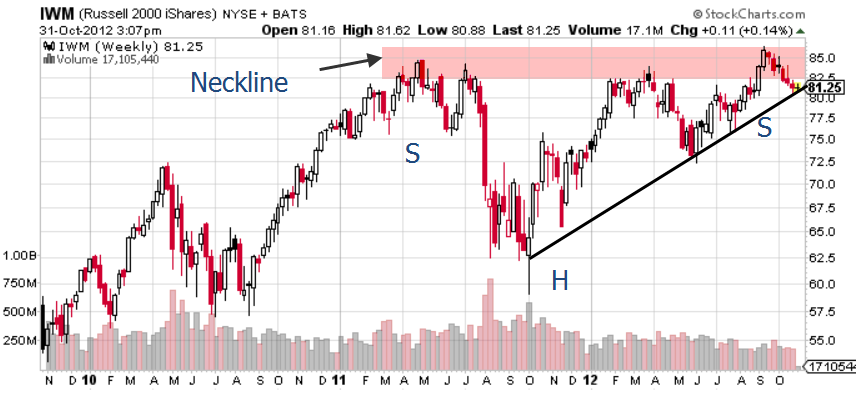 Author: Felix Tong
Author: Felix Tong
Covestor model: Long Term Core Holdings
As a new year begins, many investors like to reflect on what transpired during the prior year. I would like to take January’s report to do the same.
The biggest challenge I faced in 2011 was the establishment of the Long Term Core Holding portfolio. In my eagerness to establish the portfolio, I was too aggressive in my initial purchases. These purchases caused the portfolio’s cash position to dwindle. When opportunities presented themselves later in the year, I was not comfortable further reducing my flexibility in managing the portfolio by taking action. One option I will not do in these situations is to deposit more funds into the portfolio, since this can cause mirrored accounts to sell positions, incurring transaction fees and potentially tax consequences. Since the portfolio doesn’t take advantage of margin or options, the only other possibility would have been to sell the portfolio’s holdings. However, I was satisfied with the way the portfolio was positioned and decided instead to pass on these opportunities, and keep a portion of the portfolio in cash for even more attractive opportunities in the future. I will be committed to being more selective in future purchases as to avoid the lack of flexibility I felt late last year.
At the start of 2012, the Long Term Core Holding portfolio is overweight housing. In fact, the argument can be made that all positions in the portfolio are related to housing (building materials and banks). Eventually the housing market will recover and when it does I’m hopeful the portfolio will benefit. The position that I am most confident going forward is USG Corporation (USG), which makes up about 50% of the portfolio. I wrote about USG in June 2011.
As a long term investor, it is too soon to determine what investments have panned out and which ones have failed to meet expectations. As the year has progressed, I have continuously re-evaluated the positions in the Long Term Holdings Portfolio and remain satisfied that over the long haul the securities will perform very well.
Gold
Gold continues to be a hot topic of discussion. Some investors argue that gold has no value since it does not produce cash flows, while other investors believe gold is the only true storage of value due to its scarcity and its historical status as a form of money. Personally, I believe that gold has value due to the fact that historically people have viewed it is a form of money. However, I will not be investing the cash in the Long Term Holdings Portfolio in gold as, currently, I do not understand how to value it.
Global Markets
Globally, Europe continues to be a mess with the future of the Eurozone in doubt and it now appears that an economic slowdown is imminent in China. Every day there seems to be a new story in the financial section discussing a new doom and gloom scenario.
In November of this year I visited two of the PIIGS, Ireland and Spain. What I saw was a situation similar to the United States, a place where life is going on despite the woeful headlines. People are still buying candy bars, eating at restaurants, and driving new cars. New buildings are being built and people are going about their lives. The economies of these countries will eventually recover and judging from my experience this will occur sooner than the headlines indicate.
The engine of global growth for the past few years has been China. China has been growing so fast for so long that people fear that any type of slowdown will cause a global recession. China will eventually have a recession, if only because no country has figured out how to avoid one. Whether this will cause a global recession, nobody knows.
No matter what happens globally in 2012, the Long Term Holdings Portfolio should be reasonably immune (good or bad), due to its reliance on the US housing market.
US Markets
Unlike global markets, the US market will have a dramatic effect on what will happen to the Long Term Holdings Portfolio in 2012. Being an election year, I am bombarded daily with articles on the Presidential Election Cycle Theory. These articles may get wide readership, but they provide little insight to the average investor. Turn to the editorial pages and it seems like there are a never ending stream of inflation/deflation debate and recession/growth debate articles.
As a bottoms up, fundamental investor I try to drown out this noise and look at data that will affect the portfolio. For example, since the housing bust in the 2006/07 timeframe new home construction has greatly slowed, and recently has failed to keep up with household formations, as shown in Exhibit 4 of this presentation. Eventually housing will recover and the Long Term Holdings Portfolio should have robust gains.
Treasuries
All the doom and gloom in the news in 2011 has caused treasury yields to plummet. This scenario has left investors with a dilemma as where to park their cash. Many market commentators have pointed to dividend paying stocks. The Long Term Core Portfolio holds a couple of dividend paying stocks: Wells Fargo (WFC) and B of A Trust Preferred (BAC PRU). I anticipate WFC to increase its dividend in 2012.
I have also looked to merger-arbitrage opportunities to boost cash yields during this time of historically low interest rates. Although it is nice to have the portfolio’s cash earn some type of return, I feel it is important to always have some cash available to purchase securities when opportunities arise, even if the cash is earning no interest. This flexibility is essential for a value based portfolio.
For example in March 2009, when the markets were crashing, a portfolio that had cash available would have been able to make purchases, where as a portfolio that was 100% invested would have needed to sell securities at distressed prices, or not make any new purchases. This is a situation I strive to avoid.



